Easy Assessment
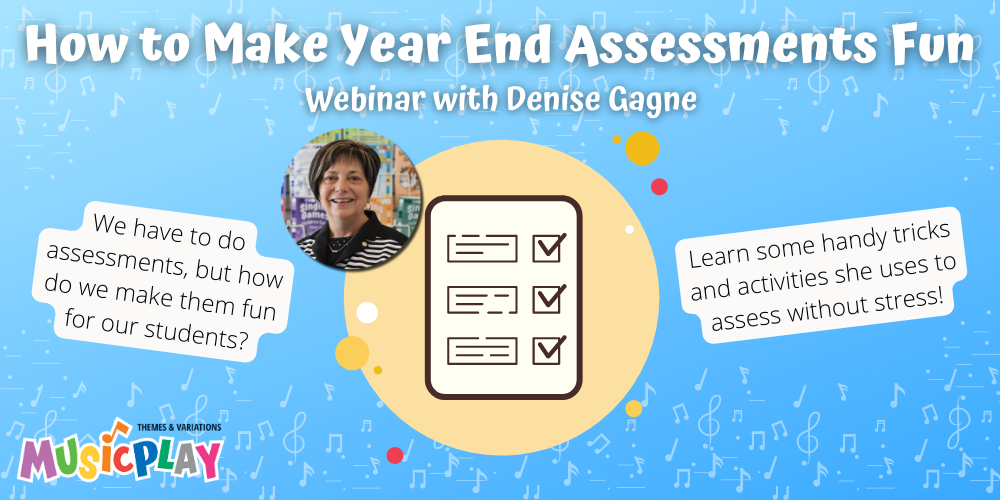
Teachers are talking on Facebook about grading and their end of year assessments. If you teach all the children in a school that is a lot of report cards to find grades for and to write comments for. It's one of the jobs that I really don't mIss now that I am a guest teacher and I'm not under contract.
The end of year assessments really begin before the school year has even started. You need to know what you want to accomplish with each grade you teach. Make a short list of what you feel is really important to cover in each grade. Here is an example:
In PreK the students will be able to
- show beat/no beat, keep a steady beat when tapping, moving, playing
- the students will match pitch
- the students will recognize and classify classroom instruments
- The students well identify and perform fast/slow, loud/quiet, high/low, smooth/separated
- identify same/different phrases, move to show different sections of the music (same/different)
- create, perform, respond and connect
I really love the posters that are found on musicplayonline.com in the lesson planning section that show what we learned in each grade level. This is a very simple way to illustrate for students, parents, admin, and ourselves what we hope to accomplish in the school year.
Teachers are amazing, and they can do anything. However even teachers can't do everything. If you only have music for 30 minutes once a week you can't do everything that's in the curriculum. Even if you have music twice a week for 30 minutes, when you have challenging classes with difficult behaviours it is often not possible for you to teach everything in the curriculum. Teachers are spending more time creating beautiful humans and socializing our children then they actually spend teaching.
The first steps in planning for assessment is to find out what your district and school expectations for reporting are. If there is only space on the report card for one concept, then you should only plan to assess that one concept formally. Of course you will assess many concepts informally, and you may even want to record the students progress in those other concepts. But at most, you should consider reporting on 2 to 3 concepts per term. Don't overload yourself!
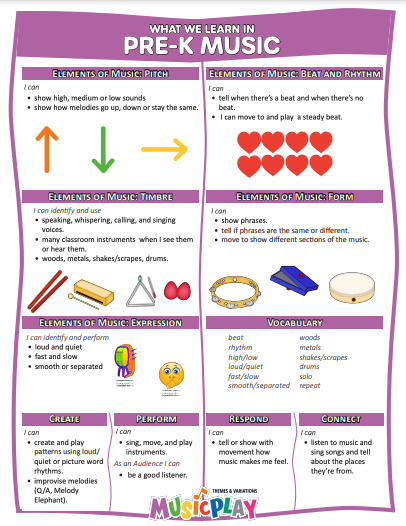
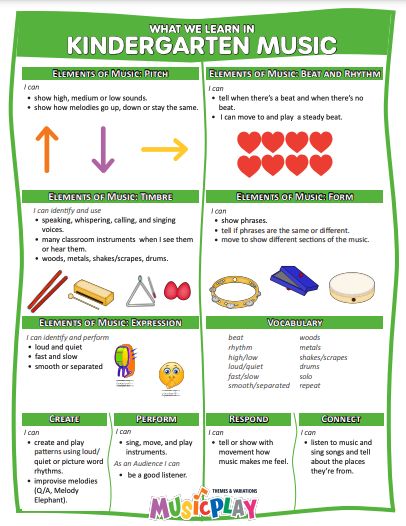
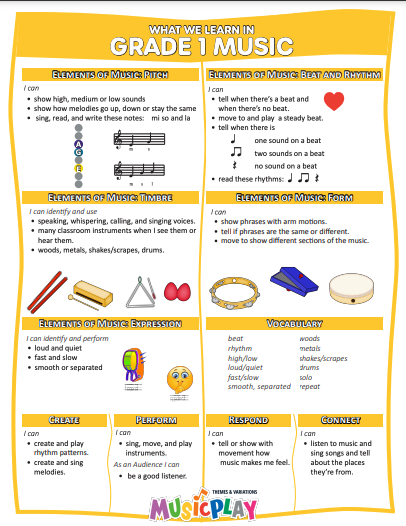
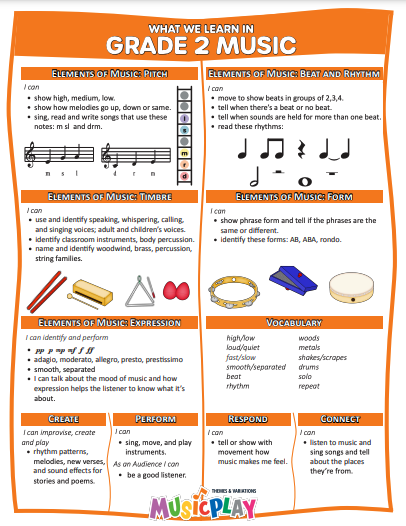
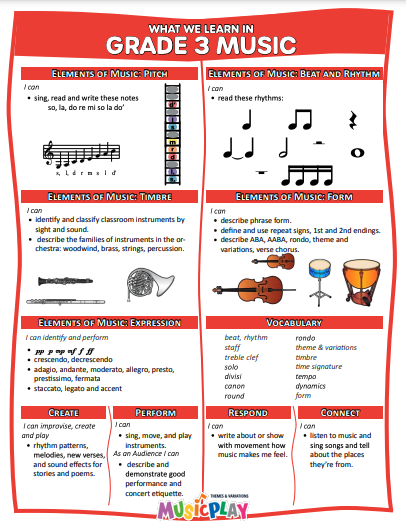
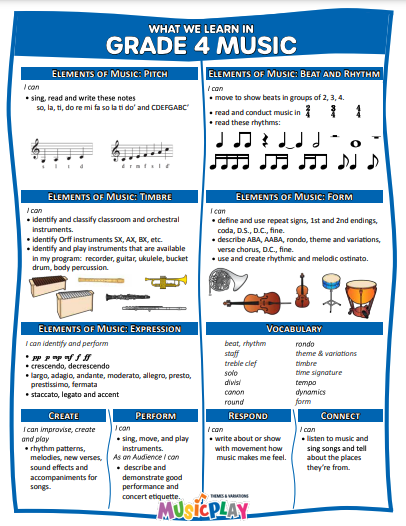
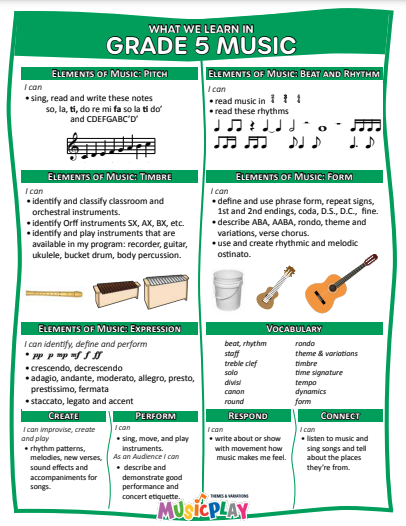
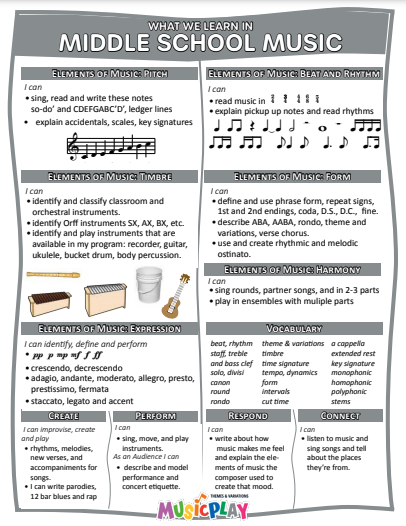
Checklists or rubrics? (Grade 2)
In music checklists can be a very valuable tool and perhaps quicker for the teacher to use. Whether you prefer checklists to rubrics or the other way around there are many samples of assessments in the lesson planning section-lesson plans-planning resources. The planning resources button is yellow and it's currently small but when you select this button there is a wealth of material for you to use.
I like this checklist. I've used it or similar ones for many many years. I don't pre-fail the expectations. Rather, as I assess each of those ideas a note what I'm assessing and the date and then it's check yes or check no for most students. Most students will be a check yes you'll be identifying more the ones who can't keep a steady beat than the ones who can. So if I'm going to assess beat, I'll write it on my class list or in my gradebook, and I'll add what I'm using to assess that. It may be play instruments. It may be tap a beat on legs, hand, head. Each of these beat activities is a little different so I may assess more than one each term. But by assessing several times I'll have a good idea who has it and who doesn't.
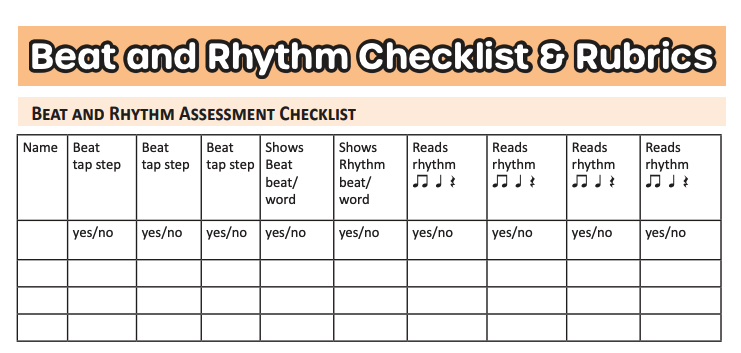
If you prefer to use a rubric you might use the rubrics that are given below. And instead of a check mark or an ex you raven the number 1,2, 3 or 4. Either way he will choose the activity, assess, and then record in your class list or in your gradebook program. When I am assessing beat I do it simply by observation and I look for the ones who can't do it because most of the children will be competent. To assess beat I would put on a favourite movement activity and then watch the students. Examples might include the song Action Leader, or Skateboard Rider, or Shake It, Go Bananas, Elephants Have Wrinkles, Jig Jig Jiggles or any of your favourite movement songs.
If I want to assess steady beat when they're playing an instrument I might use the song play and stop, or any of the instrument songs. You will find some new ones on Musicplayonline in instruments -unpitched.
If I want to assess steady beat when they're playing an instrument I might use the song play and stop, or any of the instrument songs. You will find some new ones on Musicplayonline in instruments -unpitched.
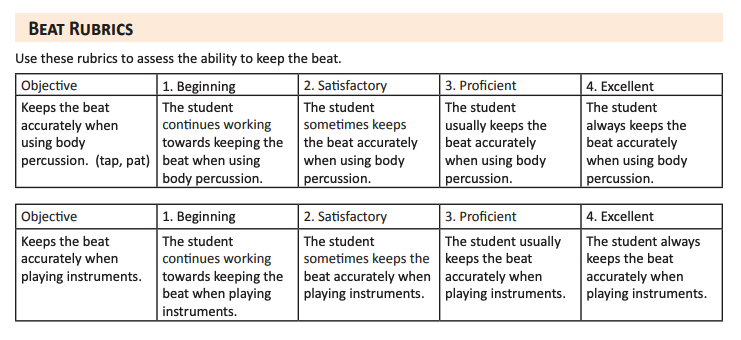


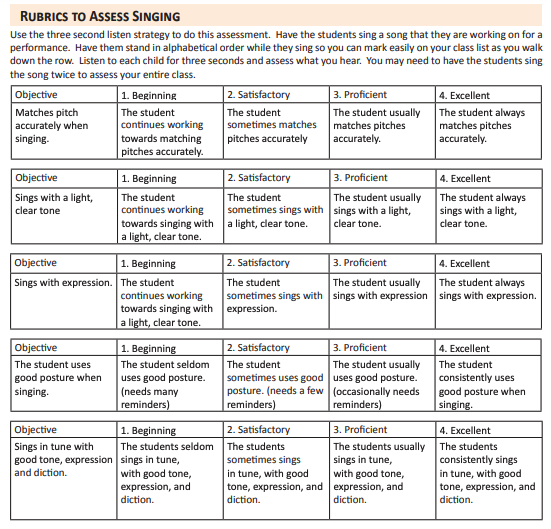

Musicplay Live
Registration for Musicplay Live in Washington, DC; Austin, TX; and Virtual is open!
Musicplay Workshops
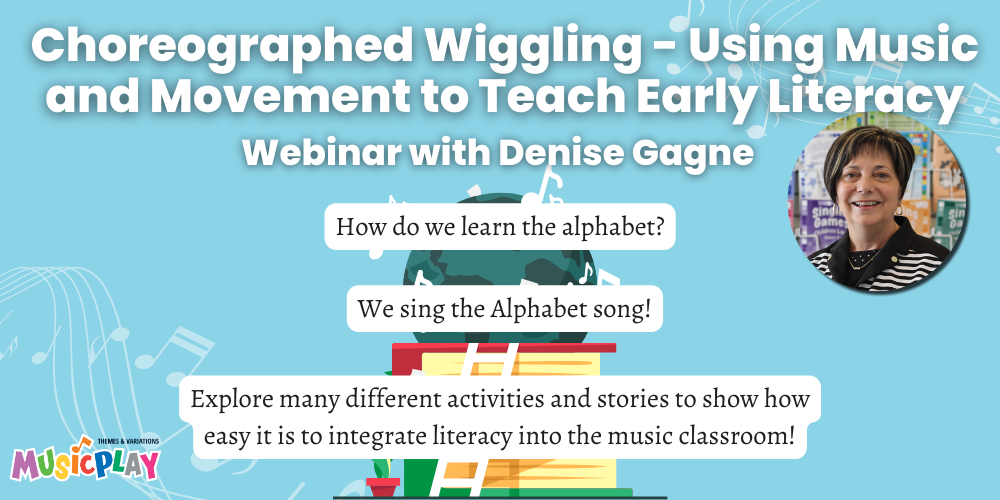
Check out our latest webinar on activities for using music and movement to teach early literacy!
Musicplay Minutes Podcast
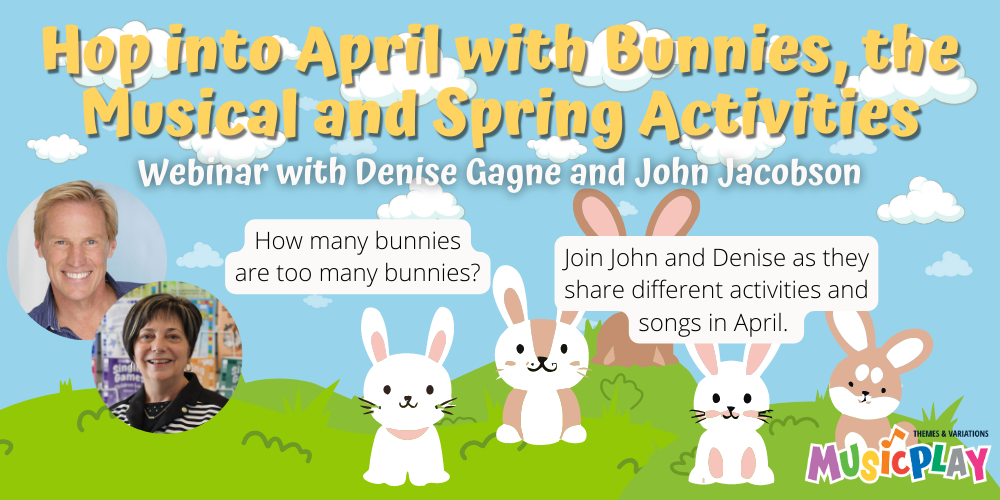
Listen to our newest podcast on ideas for Spring and Bunnies: The Musical!

.png?width=483&height=405&name=MusicplayLive%202023%20Sing!%20Say!%20Dance!%20Play!%20With%20Artie%2c%20Denise%2c%20and%20JJ%20Locations%20FB%20(2).png)